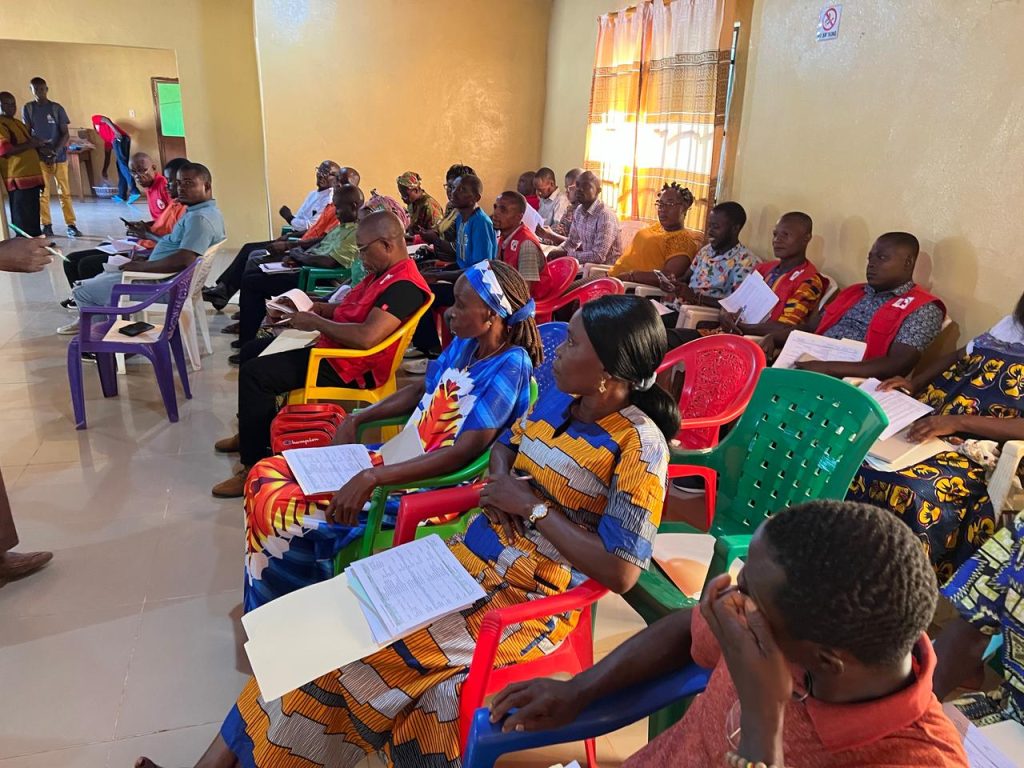The Liberia National Red Cross Society (LNRCS) recently concluded a crucial two-day induction training program for its newly elected local and regional leaders in Zwedru, Grand Gedeh County. The training, themed “Strengthening Leadership and Collaboration for Effective Governance and Management,” aimed to equip these leaders with the necessary knowledge and skills to effectively manage their respective branches and contribute to the organization’s overall mission. This initiative was particularly vital given the significant influx of new leaders following recent local elections across Liberia’s fifteen counties, with a staggering 93% of elected officials being new to their roles and responsibilities within the LNRCS. The training served as a foundational platform for these individuals to familiarize themselves with the intricacies of Red Cross governance, policies, and principles.
The induction training brought together 36 participants from five southeastern counties: Sinoe, Grand Kru, Maryland, River Gee, and Grand Gedeh. This diverse group included local governance members, management staff, the LNRCS Southeastern Regional Vice President, and chairpersons focusing on policy and governance, as well as resource mobilization and fundraising. By gathering representatives from various levels and areas of expertise, the training fostered a collaborative environment and facilitated the sharing of best practices and experiences across different branches. The program’s comprehensive curriculum covered a wide range of topics crucial for effective leadership within the Red Cross framework.
A central focus of the training was addressing the knowledge gap created by the influx of new leadership. The program meticulously outlined the governance structure of the LNRCS, clarifying roles, responsibilities, and reporting lines within the organization. Participants were also introduced to the core policies and principles governing Red Cross operations, emphasizing the importance of adhering to these guidelines to maintain the organization’s integrity and uphold its humanitarian mission. Furthermore, the training underscored the significance of strong leadership and coordination in responding effectively to the growing humanitarian challenges facing Liberia.
The LNRCS recognizes that effective humanitarian action hinges on the strength and capability of its local leadership. By investing in the training and development of these leaders, the organization aims to strengthen its capacity to deliver timely and impactful services to vulnerable communities across the country. The induction training emphasized the critical role of local leaders in ensuring the visibility and relevance of the Red Cross among key community actors. By empowering these individuals with the necessary knowledge and skills, the LNRCS seeks to enhance its ability to advocate for local needs, coordinate humanitarian efforts, and drive impactful action on the ground.
Beyond strengthening governance, the training also served as a platform for fostering collaboration and coordination among the various Red Cross local offices within the southeastern region. By bringing together leaders from different counties, the training facilitated the establishment of vital networks and communication channels, promoting a more unified and cohesive approach to humanitarian action. This regional focus allowed participants to address specific challenges and opportunities within their area, fostering more effective and targeted interventions. The enhanced collaboration and coordination fostered by the training are expected to significantly improve the delivery of humanitarian services and strengthen the overall impact of the LNRCS in the southeastern region.
The LNRCS remains steadfast in its commitment to empowering its leadership and volunteers to effectively address the humanitarian needs of communities throughout Liberia. Through initiatives like this induction training, the organization aims to cultivate a strong and knowledgeable leadership cadre capable of navigating the complexities of the humanitarian landscape. By reinforcing its governance structure and investing in the development of its human resources, the LNRCS is confident in its ability to maintain high standards of service, uphold its humanitarian mission, and continue to be a beacon of hope for vulnerable communities across the nation. The training served as a crucial step towards building a more resilient and effective organization capable of responding to the evolving humanitarian challenges facing Liberia.














